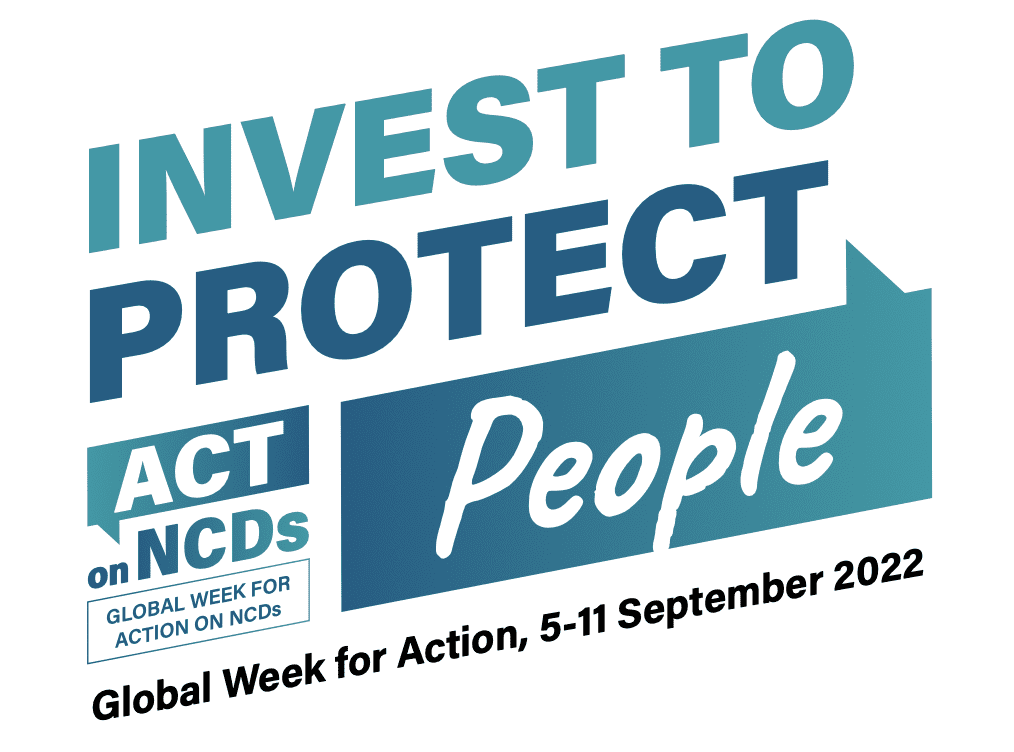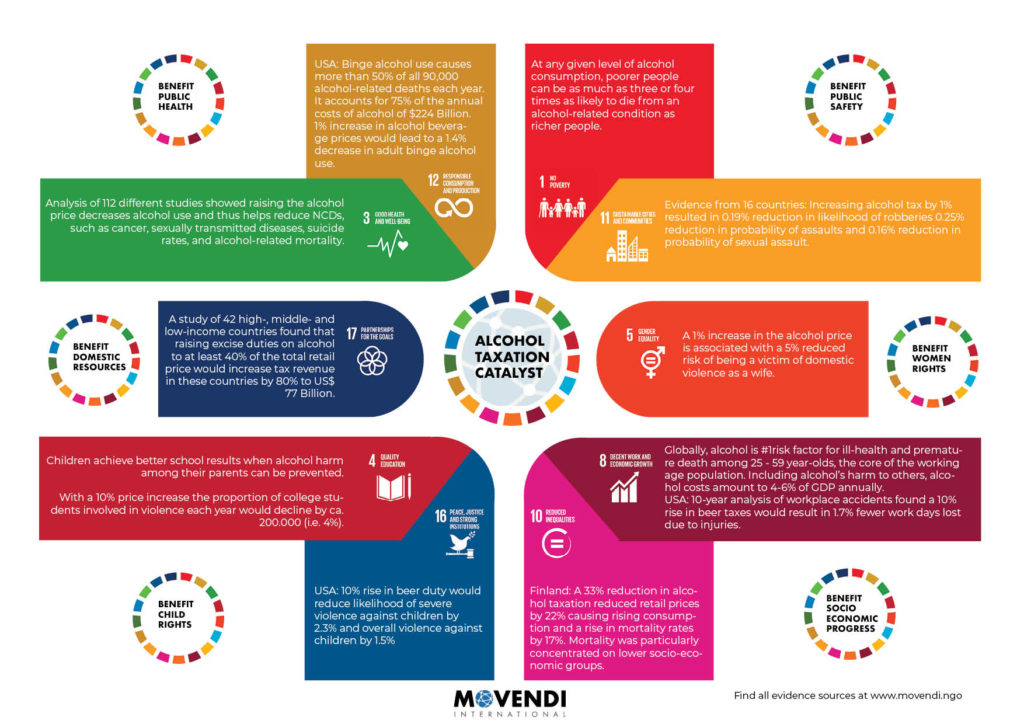Investing in NCDs Prevention and Control through Alcohol Taxation
The Global Week for Action on NCDs is taking place this year from 5 to 11 September. The theme of this year is “Invest to Protect”.
According to the NCD Alliance for an investment of $1.27 per person per year, low- and middle-income countries could save 8.2 million lives, prevent several NCDs, and generate $350 billion by 2030.
Alcohol taxation is one effective policy tool that governments can use to generate revenue that can be invested in NCD prevention. Additionally, since alcohol use is one major risk factor for NCDs alcohol taxation prevents NCDs by reducing alcohol use.
As Movendi International has been reporting, implementing alcohol taxation reaps a triple positive effect.
- Domestic resource mobilization
- Alcohol taxation generates government revenue for financing development and health promotion such as NCD prevention.
- Reducing alcohol’s health and development burden
- Alcohol taxation reduces population level alcohol use and thus reduced the overall public health, social and economic harm caused by the products and practices of the alcohol industry.
- Prevention of alcohol initiation and health promotion
- Alcohol taxation helps maintain high-levels of alcohol abstention rates in low- and middle income countries.
There is strong and growing evidence that pro-health taxes on health harmful products, such as tobacco, alcohol, and sugar-sweetened beverages, are highly impactful and yield significannt return on investment.
A landmark study confirmed this in 2020:
Excise tax increases on tobacco, alcohol and SSB can produce substantial health gains by reducing premature mortality while raising government revenues, which could be used to increase public health funding.”
Summan A, Stacey N, Birckmayer J, et. al. The potential global gains in health and revenue from increased taxation of tobacco, alcohol and sugar-sweetened beverages: a modeling analysis. BMJ Global Health 2020
1. Harnessing the full potential of alcohol taxation
2. Understanding the economic costs of alcohol harm
3. Understanding the social costs of alcohol harm
4. The vast and untapped potential of alcohol taxation for investment in health and development
Taxing alcohol, tobacco, and sugar-sweetened beverages is an effective but underutilized policy for promoting health and preventing disease. They could also assist in raising more funds for the government to support investments and programs that benefit the entire population and improve equity. Alcohol taxation is a win-win-win measure for public health and the economy specifically in recovering from the COVID-19 pandemic.
5. Case studies about the positive impact of alcohol taxation for investment in health and development
More and more governments and organizations are waking up to the potential of alcohol taxation for investment in health and development.
The latest Financing for Sustainable Development report by the UN Inter-Agency Task Force highlights the importance of alcohol taxation.
The Alcohol Issues Podcast
S1 E15: Understanding Alcohol Taxation: Design, Potential and Window of Opportunity
In this episode host Maik Dünnbier talks with Dr. Evan Blecher of the World Health Organization focusing on pro-health taxes and specifically the design, potential, and window of opportunity for better alcohol taxation.
Evan and host Maik go deep into the weeds of health taxes, focusing more specifically on alcohol excises taxes. They discuss different terms for health taxes and what they reveal about the purpose and potential of health taxes.


